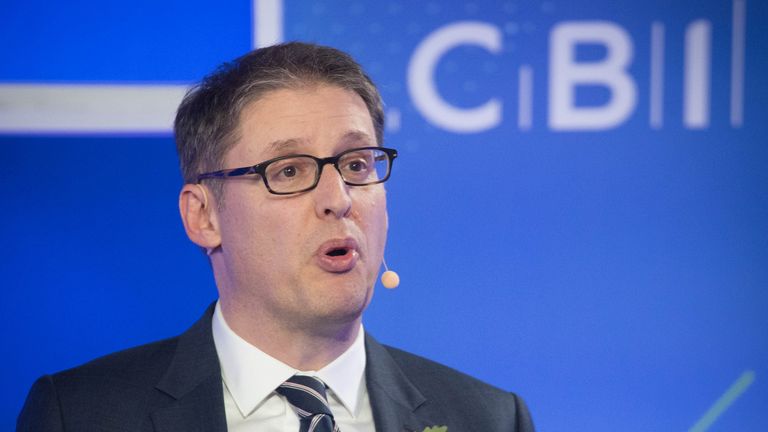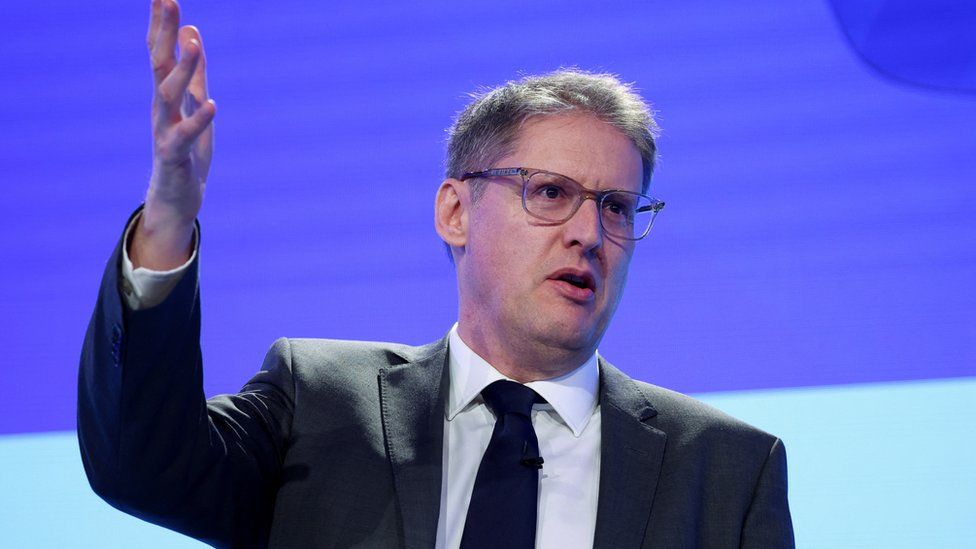The Confederation of British Industry’s president, Tony Danker, has resigned amid an inquiry into complaints about his behaviour.
The Guardian contacted the CBI last week regarding a formal complaint made in January as well as a number of alleged unofficial reports of concerns regarding his behaviour, leading to the decision to engage a law firm to look into him.

According to reports, a female CBI employee filed an official complaint alleging that the director general of the business lobbying organization made unwanted contact with her and viewed this behaviour as sexual harassment.
After the official complaint was filed, Danker kept up his representation of the powerful organization in the media and at public gatherings. Most recently, he attended a CBI conference last Wednesday, where the education secretary, Gillian Keegan, gave the keynote address.
The CBI acknowledged receiving a formal complaint in January about Danker’s “workplace behavior,” but decided against taking it further and initiating disciplinary action.
According to CBI protocol, the claim was fully investigated and handled, according to CBI president Brian McBride. The CBI probe found that there was no need to escalate the matter to a disciplinary procedure.
The CBI stated that an independent investigation had been launched and that Danker had requested to step aside during it after the Guardian enquired about the formal complaint on Thursday and raised several additional allegations about Danker’s conduct toward other employees, including worries that the director general had been viewing employees’ personal Instagram profiles.
To oversee the investigation, it has recruited Fox Williams’ head of employment law, Joanna Chatterton. Danker has been temporarily replaced by the CBI’s top UK policy director, Matthew Fell.
The CBI was informed of fresh complaints regarding Tony Danker’s behaviour at work on March 2, according to McBride. We have now taken action to launch an impartial inquiry into these fresh issues. While the investigation is being done independently, Tony Danker asked to step down as the director general of the CBI.
It’s important to point out that until this investigation is over, any new claims remain unproven, and it wouldn’t be right to say anything else at this time. “The CBI considers all matters of workplace conduct extremely seriously.”
The UK’s most senior business lobbyist is accused of sending her a lot of unwanted messages, some of which were sexually explicit, and making unwanted comments about her at work over a period of more than a year.
It is believed that the CBI will contend that the complainant only voiced objections to unwanted verbal interaction and made no mention of messages or their frequency.
It has been embarrassing to learn that I have upset or alarmed any colleagues, Danker said in a statement to the Guardian. I sincerely apologize; it was wholly accidental.
“I am extremely pleased to serve as the head of the CBI, the employers’ organization. The greatest standards are what we constantly aim for. I, therefore, concur with our choice to separately evaluate any fresh accusations. And I’ve made the decision to withdraw while the review is underway and will completely cooperate with it.
Since November 2020, Danker has served as the head of the CBI, which bills itself as the “top business organization” in the UK. It claims to speak for 190,000 companies, among them Lloyds Bank, Tesco, and HSBC. It regularly engages with the prime minister and government members.
After the CBI was shut out of the government by Boris Johnson’s administration due to its anti-Brexit position, he has attempted to repair its relationship with the government.
Danker has advocated for the advancement of childcare funding and the empowerment of women in order to boost female involvement in the workforce.
Between 2010 and 2017, Danker, a Belfast native and former CEO of the business advocacy organization Be the Business, held the positions of international director and chief strategy officer at Guardian News & Media, the Guardian’s parent firm.
He was a policy adviser for the Treasury and Cabinet Office during the Labour government from 2008 to 2010, just before he joined the Guardian.












